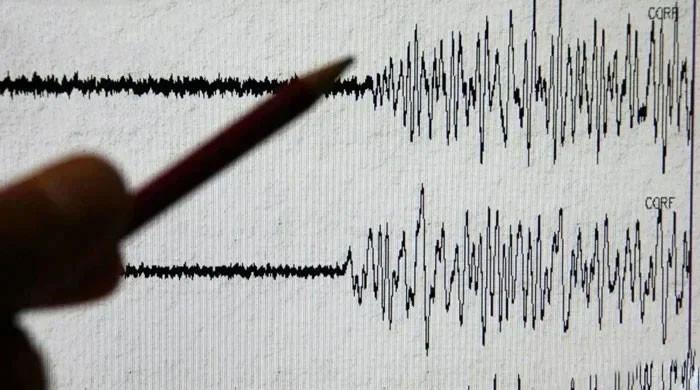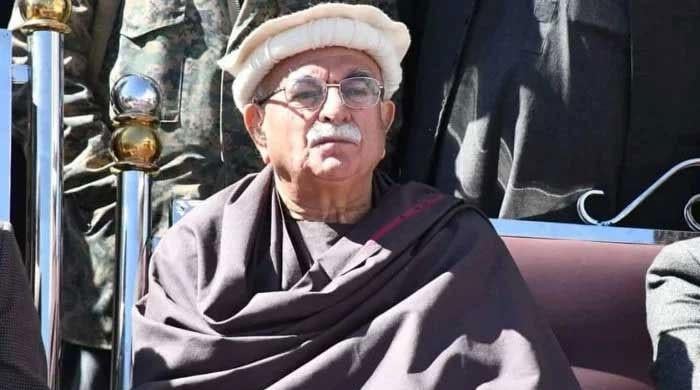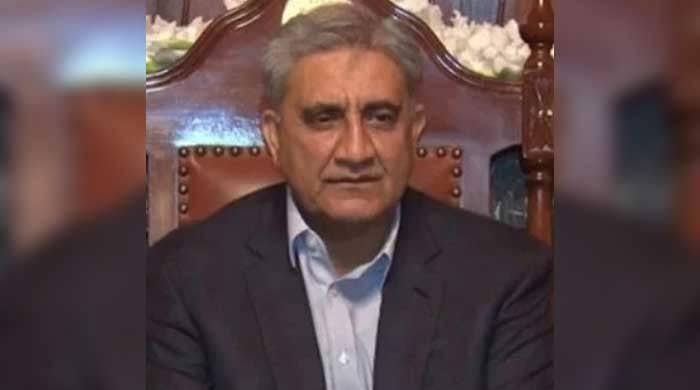Azam Swati misconduct: Will conduct trial under Article 62(1)(f), says CJP
Why don’t we make an example out of the federal minister, says CJP
December 05, 2018
ISLAMABAD: Chief Justice of Pakistan Justice Mian Saqib Nisar on Wednesday, while hearing a case pertaining to the transfer of Islamabad IGP Jan Muhammad, remarked that the Supreme Court will conduct Federal Minister Azam Swati’s trial under Article 62(1)(f) of the Constitution, under which former prime minister Nawaz Sharif and Jahangir Tareen were disqualified.
A three-judge bench headed by the chief justice heard the suo motu case of the Islamabad IGP’s transfer.
On November 29, the chief justice had said Swati had misused his powers and sought a clarification from him under Article 62 (1)(f) of the Constitution. During the hearing on Tuesday, the top court had directed the Federal Minister for Science and Technology Senator Swati to submit a written reply by last night.
As the hearing went under way today, the chief justice remarked, “We have read Swati’s reply.”
Turning to the federal minister, Justice Nisar said, “You are a person of authority. Do people in power treat their subordinates like this? Do rulers send women to jail because of issues involving cows?”
The chief justice then turned to the Islamabad IGP and remarked, “You did not take any action on this matter?” To this, the Islamabad IGP responded, “Action was not taken as the case is being heard in court.”
Justice Nisar added, “Why don’t we make an example out of Swati. Now, the court will conduct his trial under Article 62(1)(f) of the Constitution.”
Further during the hearing, the chief justice asked Supreme Court Bar Association (SCBA) President Amanullah Kinrani, “On whose behalf are you appearing and what is your relation with the case?”
Kinrani responded, “I am here in my personal capacity as Swati’s former colleague.” He also requested the court to not conduct the federal minister’s trial under Article 62(1)(f) of the Constitution and said, “The court should forgive him, he has learnt now.”
However, Justice Nisar said, “He will learn when he is sentenced.” He further questioned, “Tell us, whether to conduct the trial under Article 62(1)(f) of the Constitution here or should we transfer it?”
At this, Swati’s counsel said, “JIT report is based on allegations and thus an inquiry cannot be conducted under Article 62(1)(f).” The counsel added, “There is no example of a trial under Article 62(1)(f) on the basis of a JIT report.”
To this, the chief justice said, “If there is no such example then we can set it.” The top judge added, “Swati should have sacrificed on moral grounds following the JIT report.”
“We do not even want money from Swati for the dam fund. We will not even take Swati’s money for national interest,” Justice Nisar further said.
The attorney general then informed the court, “NAB laws do not apply on Swati.” In response, Justice Nisar said, “We will appoint court advisers to investigate under Article 62(1)(f).”
The court appointed Advocate Khalod Javed Khan and Faisal Siddiqui as court advisers.
The hearing of the case was then adjourned till December 24.
The case
A three-judge bench headed by Chief Justice Mian Saqib Nisar had taken suo motu notice of Islamabad IGP Jan Muhammad’s abrupt transfer last month. The IGP was transferred on October 27 after he allegedly refused to take action on a complaint by the son of Federal Minister for Science and Technology Azam Swati, regarding a fight over purported encroachment with a family at their farmhouse.
The apex court had formed a JIT to probe allegations of misuse of authority, misconduct and encroachment against the minister.
The Supreme Court had taken suo motu notice of the transfer of Islamabad IGP and suspended the transfer of Jan Muhammad but had to withdraw its order after he excused himself from performing duties as Islamabad IGP.











